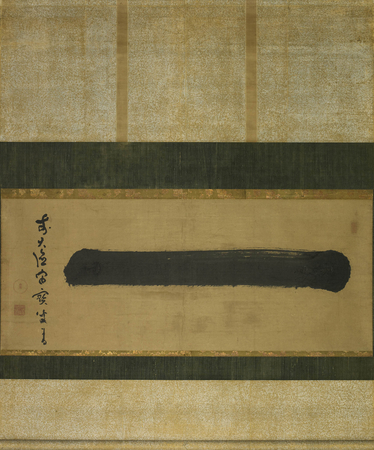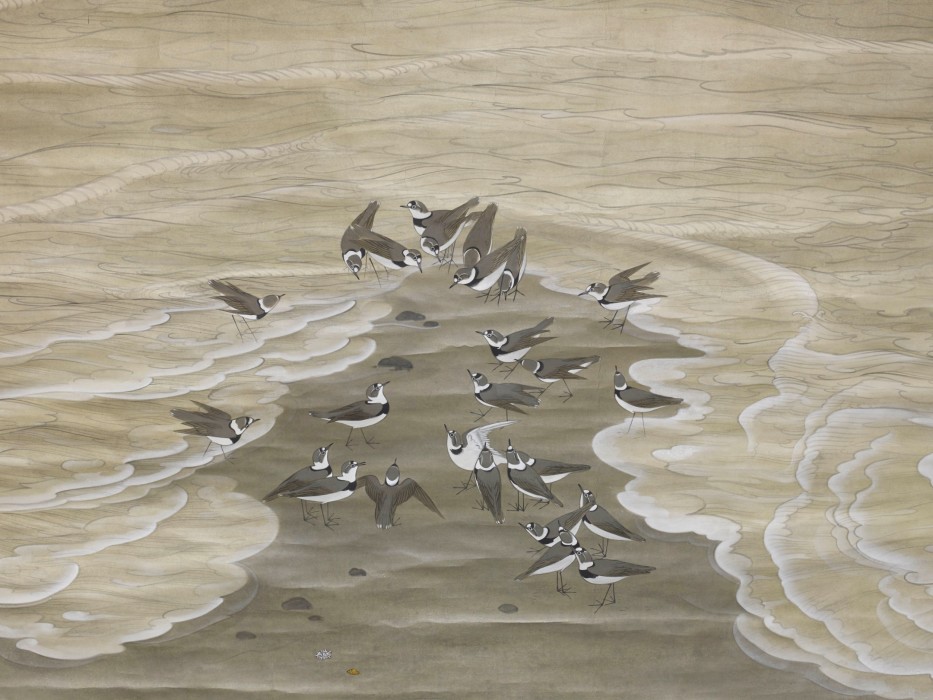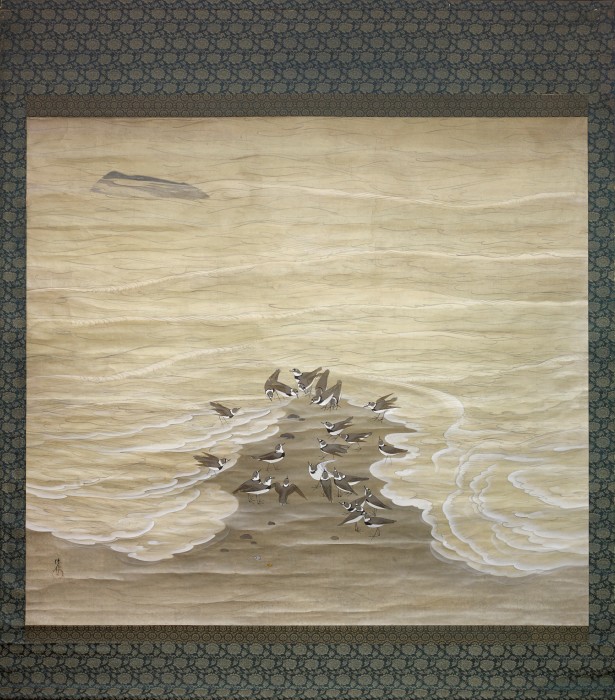Product Description
6379 Chuho Sōu (1760-1838), the 418th Abbot of Daitokuji temple, Kyoto
A kakemono (hanging scroll) painted in ink on paper with the character “ichi” (one, “the beginning”)
Signed: Zen-Daitoku Chūhō-sō sho (Written by an old man Chūhō, formerly of Daitoku-ji Temple)
Seals:
Top right: Kumo-idete tōchu akiraka-nari (When clouds disperse in the spring, even the inside of the dark cave will be illuminated.) This Zen saying was originally written by Daitō Kokushi, also known as Shūhō Myōchō (1282-1338) founder of Daitoku-ji Temple and refers to the moment of Enlightenment
Top left: Chūhō
Bottom left: Matsu-oite, kumo-shizuka-ni, kōzentoshite jiteki-su (The pine tree is growing old, under the quiet clouds, peace and quiet, self-sufficient happy life). This Zen saying was originally quoted by the founder of the Renzai sect of Zen Buddhism, the Chinese priest Linji Yixuan, jp. Rinzai Gigen (806-866) in the Record of Linji
Hakogaki (fitted box inscription): Chūhō Rōsō-sho Ichi-no-ji Yokofuku (Written by an old priest Chūhō, the character for One, scroll in horizontal format)
Japan Edo period 18th / 19th century
Dimensions:
Scroll: H. 160cm x W. 134cm (68” x 52¾”)
Painting: H. 53.5cm x W. 132cm (21” x 52”)
Provenance: collection of Morita Shojiro, Tokyo, Japan
Chūhō Sōu (1760-1838). Gō (art names): Rakuyōjin, Hasui-kanjin, Shōgetsu, Shōgetsu-rōjin, Shōgetsu-sō. He was born in Kyoto and studied Zen Buddhism under Sokudō Sōki, the 406th Abbot of Daitoku-ji, the main temple of the Rinzai sect of Zen Buddhism in Kyoto. In 1807 Chūhō became the 418th Abbot of Daitoku-ji. After his abbotship he resided at Tokai-ji and then retired at the Shōgetsu-ken (The Studio of Pine and Moon) of the Hōshun-in a sub-temple of Daitoku-ji. In 1936 he was granted the art name Daikō Shinjō Zenshi by Emperor Ninkō (1800-1846). Chūhō excelled in poetry, calligraphy, pottery and tea ceremony utensils. He died on the 8th of December, 1838, aged 79.
The character Ichi, a simple horizontal line which means “One”, is one of the most popular subjects of Japanese calligraphy. The expression “ichi-go ichi-e” (one time one chance) often associated with tea ceremony refers to the notion that every meeting with someone is unique and cannot happen again, it will never be the same twice. The idea being that life is transient, nothing is permanent, encourages us to be fully present in every moment. This is the essence of both the Way of Tea and Buddhism.








